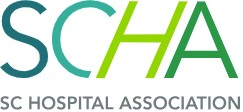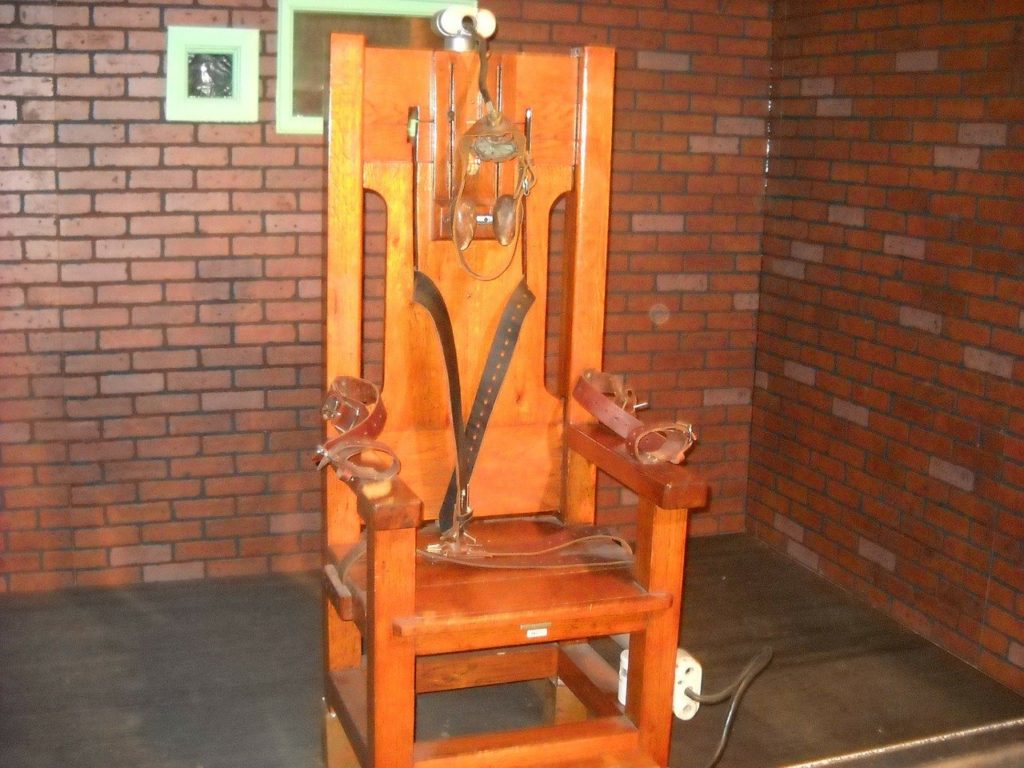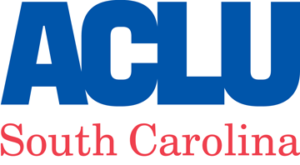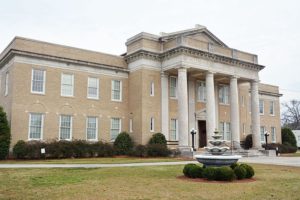STATEHOUSE REPORT | ISSUE 20.09 | FEB. 26, 2021
BIG STORY: Health care advocates promote coverage during special ACA enrollment
NEWS BRIEFS: Ol’ Sparky could return — even as Virginia nixes death penalty
LOWCOUNTRY, Ariail: Terrified
COMMENTARY, Brack: Scratch your itch to travel in South Carolina
SPOTLIGHT: ACLU of South Carolina
MY TURN, Goodwin: A better state of health needed now for South Carolinians
FEEDBACK: Letters on State Ports Authority, solar hearing
MYSTERY PHOTO: Balancing act
Advocates promote coverage during special ACA enrollment

By Skyler Baldwin, special to Statehouse Report | State and local advocacy groups are working to help those who qualify for affordable health insurance under the Affordable Care Act (ACA) thanks to an order from President Joe Biden, issued in the first days of the new administration.
Since the ACA was passed in 2010, the GOP-led S.C. General Assembly has refused to expand Medicaid under the ACA, leaving more than 100,000 people in a coverage gap during the ongoing pandemic. And, it’s unlikely state legislators will expand Medicaid any time soon, after a 2012 Supreme Court ruling that allows states to decline Medicaid expansion gave an out to then-Gov. Nikki Haley.
The window to enroll in the ACA typically is Nov. 1 to Dec. 15. Although 200,000 people signed up for plans in 2020, which is a 16,000+ increase from the prior year, the pandemic made it difficult for many to apply during the 45-day window.
 “There’s one family who called us and said they’d had a death in the family during the 2020 window,” said S.C. Hospital Association Vice President of Engagement Rozalynn Goodwin. “They weren’t thinking of insurance at that point.”
“There’s one family who called us and said they’d had a death in the family during the 2020 window,” said S.C. Hospital Association Vice President of Engagement Rozalynn Goodwin. “They weren’t thinking of insurance at that point.”
The executive order by Biden, who promised to make health care more affordable and available for people without work-provided coverage, reopened ACA enrollment on the federal health insurance exchange in a special period between Feb. 15 and May 15.
“We hosted a phone bank on the first day of the special enrollment period, and the phones would not stop ringing,” Goodwin said. “There is definitely a great need across the state — people who may have missed open enrollment in November or those who were just dealing with the pandemic.”

The association isn’t the only group that’s already seen uninsured South Carolinians eager to get covered. The Palmetto Project’s director of programs, Shelli Quenga, said that the only thing stopping many people from enrolling before was the lack of information, and the new administration has helped.
“When people know the facts and the truth of the ability to enroll, that really helps,” Quenga said. “Most people are covered by their employer-sponsored coverage, but they just don’t know how individual coverage works. It’s stuff you don’t need to know until you need to know it.”
The Palmetto Project, a statewide nonprofit that seeks to identify creative strategies to address the social and economic challenges facing our state, has been the catalyst for more than 330 successful public-private partnerships through the years that have helped change South Carolina in a variety of ways.
“In a volatile labor market like right now, when people lose their jobs, health insurance, a lot of times, goes along with it,” Goodwin said. “That certainly is part of the reason we saw such a big increase in signups at the end of last year.”
South Carolina’s unemployment rate jumped from 3.2 percent in March 2020 to 12.8 percent in less than a month as the pandemic took hold, according to the U.S. Department of Labor. Only months before, the Centers for Medicare and Medicaid Services approved an employment requirement for South Carolinians who get Medicaid. It was the first approval for a state that hadn’t expanded Medicaid and set up 124,000 people in S.C. to lose coverage in 2020, according to the Kaiser Family Foundation.
Medicaid covers about 19 percent of South Carolina’s 5.1 million people, primarily those who have incomes up to 67 percent of the federal poverty level, as well as children, the elderly, the disabled, women who are pregnant or those who are parents of minor children. Adults who don’t fit into one of these categories are not eligible for Medicaid coverage, no matter how low their income is.
“Woe to the person whose taxable income is low,” Quenga said. “There is no option for affordable coverage in our state, unfortunately. We still get a lot of those calls, and that’s our least favorite thing to say, ‘Sorry, you’re too poor for coverage in South Carolina.’ It’s a horrible thing to say to someone.”
The issue is even more pronounced for people living in rural areas in the state.
“If you need vision care, the only free clinic in the state is in Richland and Lexington counties,” Quenga said. “So, too bad if you live in Charleston. Heaven help you if you live in McCormick County. They don’t have the same resources in more rural counties. Your access to health care and health status are directly related to your ZIP code.”
Other health care proposals from Biden geared toward expanding Medicaid at a federal level will take more time, because they would require reversing or changing existing rules, waivers and demonstration projects put in place by the Trump administration, according to national publications.
Still, groups are working to get as many eligible people covered under the ACA as soon as possible. Those who enroll before the end of the month can have active coverage as soon as March 1.
Skyler Baldwin is a staff writer for the Charleston City Paper, a sister publication of Statehouse Report. Have a comment? Send to: feedback@statehousereport.com. Make sure to add your name and contact information for verification.
Ol’ Sparky could return — even as Va. nixes death penalty

By Sam Spence, Charleston City Paper | While South Carolina legislators scrambled to find the next-easiest way to kill people sentenced to death by the state, Virginia lawmakers voted Monday to abolish capital punishment.
South Carolina has not executed an inmate in nearly a decade, as the drugs used to perform lethal injections have expired and become difficult for the state to buy. Pharmacists and pharmaceutical companies have been reluctant to prescribe or supply states with the drugs needed to perform lethal injections. South Carolina was one of several states that reportedly had illegally imported drugs used in lethal injections seized by the federal Drug Enforcement Agency as of 2011.
Since then, politicians have tried, but struggled, to find ways to restart executions. A bill filed in the S.C. House in 2018 and Republican candidate for governor Catherine Templeton supported the idea of using a firing squad to kill inmates sentenced to death. Now, a bill advanced by the House Judiciary Committee on Monday would make electrocution the default method of state-sanctioned execution.
Currently, South Carolina criminals sentenced to death can choose to die by lethal injection or electrocution. The state’s “death chamber” is located at Broad River Correctional Institution, about a 13-minute drive from the Statehouse. There are 37 people currently on South Carolina death row.
In Virginia, a state that has executed 113 people — second only to Texas since 1976 and more than twice as many as South Carolina — the Democratic-controlled legislature passed a bill to ban capital punishment on Monday. Gov. Ralph Northam, also a Democrat, is expected to sign it, making Virginia the 23rd state to halt executions.
As lawmakers in the cradle of the Confederacy abolish capital punishment, racial disparities in the state where the Civil War began show Black people are disproportionately likely to receive the death penalty.
“The arbitrary and unreliable nature of capital punishment in South Carolina is only part of the problem,” said Frank Knaack, executive director of ACLU of South Carolina, in a City Paper op-ed published Wednesday. “Capital punishment evolved from lynchings and racial terror, and South Carolina has failed to divorce its modern capital punishment system from this racist history. It remains a racist system.” More: Charleston City Paper.
In other recent news:
![]() Plan to vaccinate teachers stalls. A legislative effort to prioritize teachers for COVID-19 vaccinations has failed to advance out of a House committee, possibly signalling the effort’s doom. The bill attempted to thwart Gov. Henry McMaster and the state health agency, which has prioritized the state’s elderly. Health officials said there wouldn’t be enough vaccine to get all teachers vaccinated and it could delay shots for seniors, risking more hospitalizations. More: The State. Meanwhile, teachers, grocery store employees and other essential workers in South Carolina could be eligible for the coronavirus vaccine in two to three weeks, health officials told lawmakers Tuesday.
Plan to vaccinate teachers stalls. A legislative effort to prioritize teachers for COVID-19 vaccinations has failed to advance out of a House committee, possibly signalling the effort’s doom. The bill attempted to thwart Gov. Henry McMaster and the state health agency, which has prioritized the state’s elderly. Health officials said there wouldn’t be enough vaccine to get all teachers vaccinated and it could delay shots for seniors, risking more hospitalizations. More: The State. Meanwhile, teachers, grocery store employees and other essential workers in South Carolina could be eligible for the coronavirus vaccine in two to three weeks, health officials told lawmakers Tuesday.
S.C. Senate passes COVID liability protection bill. A bill that would prevent lawsuits against businesses and other groups by people who contract COVID-19 as long as federal and state health guidelines were being followed passed the South Carolina Senate on Thursday. More: Associated Press.
Senate approves borrowing $550M for port. After four days of debate, South Carolina senators on Wednesday voted 45-1 on a proposal to borrow up to $550 million to expand the port in Charleston with more railroads and a barge that could carry cargo from one terminal to another. More: Associated Press.
S.C. looks at medical marijuana … again. For seven years, South Carolina lawmakers have mulled allowing medical use of marijuana in the state. The effort has been led by GOP Sen. Tom Davis of Beaufort, and — like every year before — he feels like this year will be the year the Legislature finally passes the Compassionate Care Act. More. WSAV.
S.C. DOT’s new program aims to improve transit alternatives in state. The state Department of Transportation answered a growing call for the transit leader to adopt a wide-ranging “Complete Streets” policy for state-owned roadways to alleviate fatality rates for pedestrians and cyclists. More: Charleston City Paper
McCoy steps down as S.C.’s U.S. attorney. U.S. Attorney Peter McCoy, South Carolina’s top federal prosecutor, submitted his resignation letter to President Joe Biden Monday. Prior to his appointment by President Donald Trump, James Island resident McCoy chaired the S.C. House Judiciary Committee. Source: Associated Press.
S.C. House considers ban on trans students in girls’ sports. S.C. House members spent more than an hour Tuesday listening to testimony on a bill that would prevent transgender students from playing on girls’ sports teams in middle and high school. More: Charleston City Paper.
Poem commemorates S.C.’s Confederate flag move. South Carolina native Nikky Finney released a poem about what it means to stop flying a flag, specifically the Confederate flag that flew in front of the South Carolina Statehouse. The flag was moved in 2015. “A New Day Dawns” was first released in 2015, but the poem this week was selected for The New York Times Magazine. More: The New York Times.
Spartanburg lawmaker files bill for ‘free speech’. First-term Republican state Sen. Josh Kimbrell from Spartanburg has introduced a bill modeled after Florida legislation to rein in social media giants that disable the voices of some conservatives. More: Spartanburg Herald-Journal.
Terrified

Here’s a new cartoon by Robert Ariail that first was published in our sister newspaper, the Charleston City Paper. Love it? Hate it? What do you think: feedback@statehousereport.com.
Scratch your itch to travel in South Carolina

By Andy Brack, editor and publisher | If you’re feeling stir crazy because of months of pandemic-related confinement to your home or hometown, there will be a day soon when travel will feel safe and comfortable again.
 For most of us, it can’t come soon enough. For many, it may not matter exactly where the destination is. It’s just important that it not be at home.
For most of us, it can’t come soon enough. For many, it may not matter exactly where the destination is. It’s just important that it not be at home.
For that reason, let’s think about traveling with a purpose of helping fellow South Carolinians. Instead of heading off to some far-flung destination, consider staying closer to home this year and visiting a region in the Palmetto State with which you’re not familiar.
Not only can this connect you more deeply to our home state, but it can help businesses in a big way. The tourism industry, which posted almost $24 billion in economic activity in 2018, took a huge financial hit during the pandemic with experts predicting revenues dropped as much as 35 percent. That could be a loss of $8 billion to local hotels, restaurants and businesses that service visitors, which include everything from gas stations and local shops to sporting venues and tour companies.
“What we’ve learned in our community is that 40,000 of our neighbors depend on the hospitality industry to feed our families,” said Doug Warner, vice president of media and innovation with Explore Charleston. “After the year we’ve all had, the return of that industry is paramount.
“Parts of our state’s hospitality economy have boomed, such as golf and state parks, but the regular mom-and-pop businesses need our support more than they ever have.”
So if you live in the Lowcountry, you might want to think about visiting the Upstate to see how hip Greenville’s downtown has become. Someone from the Upstate might deepen their love for South Carolina by visiting Pearl Fryar’s topiary garden in Bishopville or enjoying small Pee Dee towns like Lake City where there is a vibrant art scene. People often make jokes about Columbia — mainly because of the work, or lack of it, at the Statehouse, but the area has lots to do for everyone. And then there are miles of beaches and outdoor fun along the coast.
 “Our impulse to see and experience a larger world is the subject of my new book, Why Travel? A Way of Being, A Way of Seeing,” said Charleston travel writer Bill Thompson in a column published this week. “And while this moment of the pandemic may seem a rather odd time to be publishing it, this collection of essays and travel articles arrives with a glimmer of hope that soon we can start planning our travels again.”
“Our impulse to see and experience a larger world is the subject of my new book, Why Travel? A Way of Being, A Way of Seeing,” said Charleston travel writer Bill Thompson in a column published this week. “And while this moment of the pandemic may seem a rather odd time to be publishing it, this collection of essays and travel articles arrives with a glimmer of hope that soon we can start planning our travels again.”
Traveling offers a way for people to re-energize their souls and do more than see sights, he said.
“Physician, poet and humorist Oliver Wendell Holmes noted that a mind enlarged by new experience never retreats to the confines of its old dimensions,” Thompson said. “That’s what we’re after. An expanded, and expansive, view. You don’t get that from sitting in place.”
Here are some ideas, by region, of where to go:
In the Upstate, enjoy bubbling mountain streams and adventures in places like Caesars Head State Park or the Jocassee Gorges. Learn about textile history at old mills. Make the Revolutionary War come alive at Cowpens National Battlefield or in the town of Ninety Six.
In the Midlands, take a hike in Congaree National Park. Visit Riverbanks Zoo and Columbia museums. Check out the Dupont Planetarium in Aiken, the Newberry Opera House and downtown Rock HIll..
The Pee Dee offers more than South of the Border (which is fun). Downtown Florence has neat shops and restaurants. Brookgreen Gardens in Murrells Inlet is a huge hit, as are beachside attractions throughout the Grand Strand. Bishopville has the Button Museum and Hartsville is home to Coker Farms National Historic Landmark.
Throughout the Lowcountry, dabble in history in Charleston’s and Beaufort’s historic streets and buildings. Visit sites along the Gullah Geechee Cultural Heritage Corridor stretching from Myrtle Beach to St. Helena island to Jasper County. See the Angel Oak on Johns Island, the ruins of Old Sheldon Church, and the charms of old Bluffton.
The whole world is out there — but remember, so is the whole state.
Andy Brack is editor and publisher of Statehouse Report. Bill Thompson’s new book, Why Travel A Way of Being, A Way of Seeing, is published by Sojourner Books and available Feb. 28. Have a comment? Send to: feedback@statehousereport.com.
ACLU of South Carolina
 The public spiritedness of our underwriters allows us to bring Statehouse Report to you at no cost. This week’s spotlighted underwriter is the American Civil Liberties Union. The ACLU of South Carolina is dedicated to preserving the civil liberties enshrined in the U.S. Constitution and Bill of Rights. Through communications, lobbying and litigation, the ACLU of South Carolina works to preserve and enhance the rights of all citizens of South Carolina. Foremost among these rights are freedom of speech and religion, the right to equal treatment under law, and the right to privacy.
The public spiritedness of our underwriters allows us to bring Statehouse Report to you at no cost. This week’s spotlighted underwriter is the American Civil Liberties Union. The ACLU of South Carolina is dedicated to preserving the civil liberties enshrined in the U.S. Constitution and Bill of Rights. Through communications, lobbying and litigation, the ACLU of South Carolina works to preserve and enhance the rights of all citizens of South Carolina. Foremost among these rights are freedom of speech and religion, the right to equal treatment under law, and the right to privacy.
A better state of health needed now for South Carolinians

By Rozalynn Goodwin, special to Statehouse Report | I can’t think of a time when having access to affordable health coverage was more important for the people of South Carolina.

Over the past year, the state’s hospitals and health systems have valiantly led the battle against COVID-19 while continuing their efforts to provide quality primary and preventive care. This includes supporting a variety of efforts, like expanding access to health insurance.
South Carolina’s hospitals are now looking to lead more individuals to a better state of health by supporting a special open enrollment period for marketplace insurance which officially kicked-off on Monday, February 15, and will run for the next three months. I was grateful to be able to host a phone bank at the South Carolina Hospital Association (SCHA) headquarters on the first day of the enrollment period to raise awareness and help provide access to affordable health coverage options. Although I’ve now led our work around open enrollment for almost a decade, my heart still flutters every time I hear from someone who is overcome with joy and relief for having health insurance for the first time in their life.
Even before the pandemic, more than 400,000 South Carolinians were uninsured, and the economic pressures brought on by COVID-19 have only led to higher unemployment and the loss of health care benefits that accompany it. In April 2020, the national unemployment rate more than tripled from 4.4 percent to 14.8 percent, and many business owners will tell you that their enterprises have continued to suffer due to loss of revenue and public health restrictions. As our economy seeks recovery, help is also available for those individuals who lost access to care in 2020 or never had it to begin with.
While recent open enrollment periods have only been 45 days, this special window provides twice that amount of time to make sure that every South Carolinian has the opportunity to get covered. And many will be able to access coverage for little to no cost, as 90 percent of plans purchased in the state received a tax subsidy that averaged $576 a month. More than 230,000 South Carolinians took advantage of this opportunity in 2020, and we know there are more friends, family members and neighbors who need help after the year we’ve been through.
South Carolina’s hospitals and health systems stand ready to work with navigators, insurance brokers and community partners to help spread the word and get people covered in 2021. SCHA is also committed to serve as a resource for our members and our communities to expand outreach and create events to access coverage. SCHA already has another phone bank in the works before the open enrollment period ends on May 15, so please be on the lookout for more opportunities to help our fellow South Carolinians access affordable health insurance. Then you’ll know exactly how I feel every time someone thanks me for helping them achieve a better state of health.
- For more information on open enrollment and to see what options are available, go to signupsc.org or call 888-998-4646. And stay tuned for more details from SCHA as we work with South Carolina’s hospitals and health systems to get people covered in 2021.
Rozalynn Goodwin is vice president of engagement for the S.C. Hospital Association. Have a comment? Send to: feedback@statehousereport.com.
On governance at the State Ports Authority
To the editor:
![]() The Jasper County Terminal was freed from the grip of the SC State Ports Authority (SPA). It took a maximum threat to resolve the issue demonstrating the unbridled insularity of the SPA prior to this point. (More)
The Jasper County Terminal was freed from the grip of the SC State Ports Authority (SPA). It took a maximum threat to resolve the issue demonstrating the unbridled insularity of the SPA prior to this point. (More)
The root of the SPA problem is the board and the selection model used to appoint directors who need to provide direction (SC Code 54.3.1.54-3-10). The board does not. Why else is this happening? The least important element in SPA’s calculus is the community. SPA gets a free pass shielded by pointing at economic impact.
Legislators: There is something very wrong here. This is not the way to develop our economy. The state’s economic decision machinery needs to be fixed without delay. Without due consideration of the implications, how can the state throw $550 million to get rid of a problem and placate senators?
SPA should not be permitted to cut this deal for itself without further legislative review. Hold the hearing on this decision. Nor should Senator Hugh Leatherman be the agent for this backroom deal for the Leatherman Terminal.
Fix SPA governance. Should Jasper be cut out of the SPA portfolio? Is the $550 million deal a good deal for the taxpayers? So much to dig into here. $550 million is a heck of a lot of money. It should be worth something.
— Fred Palm, Edisto Island
Speak out against Dominion solar proposal on March 23
To the editor:
I am one of many Dominion customers who installed roof-top solar with net metering to reduce carbon emissions and reduce energy bills. Rooftop solar lowers the afternoon peak energy demand, thereby benefiting Dominion. In return, Dominion wants to add $36 per month in fees and cut in half the amount paid for power returned to the grid. This eliminates all incentive for people to install solar. It also shows disregard for South Carolina, as Dominion’s Virginia solar customers get a better deal.
This proposal will be subject to a public hearing at the Public Services Commission on March 23 (Docket No. 202-125-E). All of us who want to reduce S.C. carbon emissions and empower homeowners should protest at communication@psc.sc.gov.
— Mark Gould, Charleston
Send us your thoughts
We love hearing from our readers and encourage you to share your opinions. But to be published, you’ve got to provide us with contact information so we can verify your letters. Letters to the editor are published weekly. We reserve the right to edit for length and clarity. Comments are limited to 250 words or less. Please include your name and contact information.
- Send your letters or comments to: feedback@statehousereport.com
Balancing act

Here’s an interesting photo, but what and where is it? Send your guess to feedback@statehousereport.com — and remember to include your name, home city and contact information.
 Last week’s mystery, “Third time’s a charm,” was a picture of the Allendale County Courthouse. If you couldn’t figure it out, well, the name was printed atop the columns.
Last week’s mystery, “Third time’s a charm,” was a picture of the Allendale County Courthouse. If you couldn’t figure it out, well, the name was printed atop the columns.
Congratulations to George Graf of Palmyra, Va.; Jay Altman, Roy Shelley and John Hart, all of Columbia; Tray Hunter of Hardeeville; Charles Davis of Aiken; Fairey Mock of Chapin; Don Clark and Bill Segars, both of Hartsville; Frank Bouknight of Summerville; Duffie Stone of Bluffton; Steve Willis of Lancaster; Wayne Beam of Clemson; Barry Wingard and Jacie Godfrey, both of Florence; Lisa Griffin of Tega Cay; Dave Taylor of Darlington; Allan Peel of San Antonio, Texas; and Jerry Morris of Barnwell.
Stone, solicitor for Allendale and neighboring counties, recognized the courthouse and commented with just a little snark, “It’s important that I know that.” (We laughed.)
Segars gave a little history: “In 1919, Allendale County was established as South Carolina’s 46th and last county to be formed. It emerged from portions of Barnwell and Hampton counties. This Neoclassical brick courthouse is Allendale’s first and only courthouse. It was built by A.J. Kerbs from plans drawn by Geoffrey Lloyd Preacher and completed in 1922. On May 5, 1998, much of the second floor was destroyed in an arson fire, however it was beautifully restored shortly afterwards. In March of 2005, a substantial addition was made to the rear of the building by Kilnar Engineering from plans drawn by Watson, Tate & Savory. “
- Send us a mystery. If you have a photo that you believe will stump readers, send it along (but make sure to tell us what it is because it may stump us too!) Send to: feedback@statehousereport.com and mark it as a photo submission. Thanks.
ORDER NOW: Copies are in Lowcountry-area bookstores now, but if you can’t swing by, you can order a copy online today.
ABOUT STATEHOUSE REPORT
Statehouse Report, founded in 2001 as a weekly legislative forecast that informs readers about what is going to happen in South Carolina politics and policy, is provided to you at no charge every Friday.
Meet our team
- Editor and publisher: Andy Brack, 843.670.3996
- Special correspondent: Lindsay Street
Donate today
We’re proud to offer Statehouse Report for free. For more than a dozen years, we’ve been the go-to place for insightful independent policy and political news and views in the Palmetto State. And we love it as much as you do.
But now, we can use your help. If you’ve been thinking of contributing to Statehouse Report over the years, now would be a great time to contribute as we deal with the crisis. In advance, thank you.
Buy the book
Now you can get a copy of editor and publisher Andy Brack’s We Can Do Better, South Carolina! ($14.99) as a paperback or as a Kindle book ($7.99). . The book of essays offers incisive commentaries by editor and publisher Andy Brack on the American South, the common good, vexing problems for the Palmetto State and interesting South Carolina leaders.
More
- Mailing address: Send inquiries by mail to: P.O. Box 21942, Charleston, SC 29413
- Subscriptions are free: Click to subscribe.
- We hope you’ll keep receiving the great news and information from Statehouse Report, but if you need to unsubscribe, go to the bottom of the weekly email issue and follow the instructions.
- Read our sister publications: Charleston City Paper (every Wednesday) | Charleston Currents (every Monday).
- © 2021, Statehouse Report, a publication of City Paper Publishing, LLC. All rights reserved.

















 We Can Do Better, South Carolina!
We Can Do Better, South Carolina!